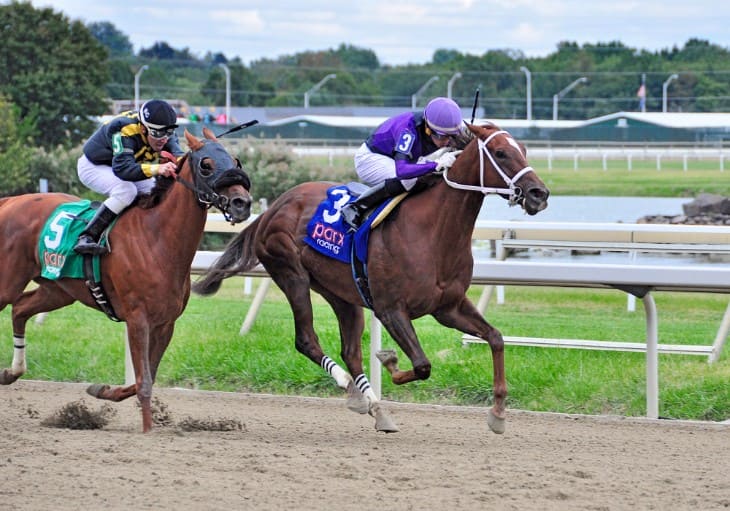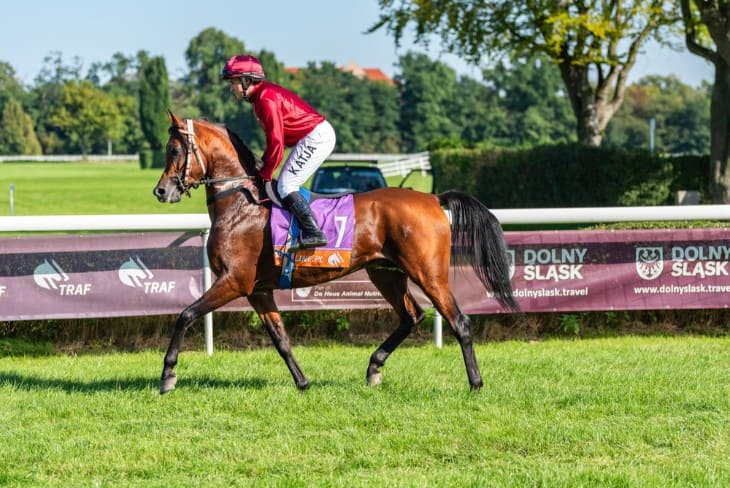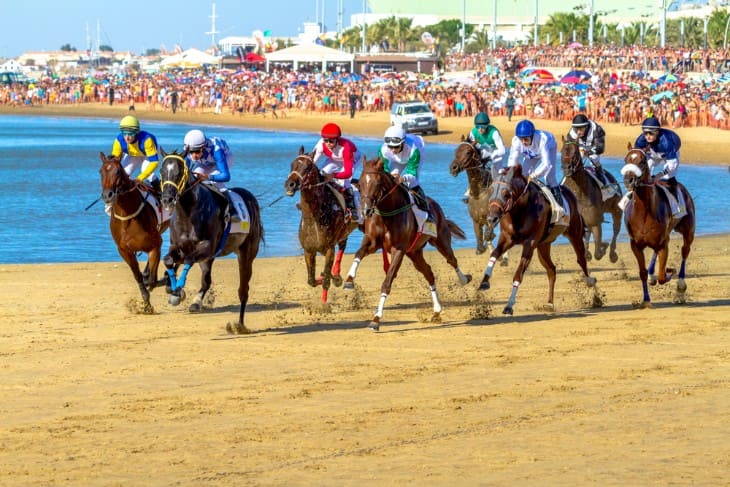- Key Factors Influencing Grand National Odds
- Comparing Traditional and Online Betting Platforms
- The Role of Bookmakers in Setting Odds
- Analysing Past Winners and Their Odds
- Impact of Jockey Experience on Betting Odds
- Understanding Betting Odds Formats
- Strategies for Smart Betting in the Grand National
- Public Perception and Media Influence on Odds
- Conclusion
Understanding the fundamentals of horse racing betting is crucial for anyone interested in the Grand National. Betting on horse racing involves predicting the outcome of a race and placing a wager on that prediction. The odds represent the likelihood of a particular horse winning, with lower odds indicating a higher probability of success.
There are several types of bets in horse racing, with the most common being:
- Win Bet: A bet on a horse to win the race outright.
- Each-Way Bet: This bet splits into two parts; one part on the horse to win and the other on the horse to finish in the top few places.
- Place Bet: A wager on a horse to finish in one of the top positions (usually first, second, or third).
- Show Bet: Similar to a place bet, but includes an additional position, typically covering first to third or fourth.
Punters must understand these betting types to navigate Grand National odds effectively. The race's unpredictable nature often leads to higher odds, offering the potential for substantial returns on successful bets. However, this unpredictability also poses a greater risk, underscoring the importance of informed and cautious betting strategies.
Key Factors Influencing Grand National Odds
The Grand National odds are shaped by various factors, each playing a critical role in determining the likelihood of each horse's success. One primary factor is the horse's form, encompassing recent performances and consistency in past races. A horse displaying a strong track record in similar events, particularly over hurdles and long distances, often attracts shorter odds. Another influential factor is the horse's age and experience. Historically, horses aged between 8 and 11 years have demonstrated a higher success rate in the Grand National, impacting their odds accordingly.
The reputation and success rate of the trainer and jockey also significantly influence the odds. A horse trained by a well-regarded professional with a history of preparing Grand National winners will likely be viewed more favourably by bookmakers. Additionally, the weight carried by the horse, determined by the handicapper based on past performances, can greatly affect its chances. A well-balanced handicap is essential for a horse to have a realistic chance of winning, which in turn is reflected in the odds.
Comparing Traditional and Online Betting Platforms
The evolution of betting platforms has had a profound impact on how punters engage with the Grand National odds. Traditional betting shops, once the cornerstone of horse race betting, offer a tangible experience with personalized service. These establishments provide an atmosphere of camaraderie and excitement, particularly during major events like the Grand National. Punters can watch races live, interact with fellow bettors, and receive immediate payouts on successful wagers.
Conversely, online betting platforms have transformed the betting landscape with their convenience and accessibility. Key differences include:
- Availability: Online platforms are accessible 24/7, allowing punters to place bets anytime and from anywhere.
- Information Access: Bettors have instant access to a wealth of information, including live odds, horse statistics, and race conditions.
- Betting Options: A broader range of betting options is available online, including in-play betting and exotic bet types.
- Promotions: Online bookmakers often offer bonuses and promotions, which can include enhanced odds and free bets.
While online platforms offer advantages in terms of convenience and information access, traditional betting shops still hold appeal for many, particularly for those who value the social aspect of betting and the experience of watching the race in a communal setting.
The Role of Bookmakers in Setting Odds
Bookmakers play a pivotal role in shaping the Grand National odds, balancing the need to attract bettors while managing their own risk. Their primary task is to set odds that reflect the likelihood of each outcome, a process known as 'pricing the market'. This involves a detailed analysis of numerous variables, including horse performance, track conditions, and public betting patterns. Bookmakers employ teams of experts, including odds compilers and risk analysts, to ensure the odds are both competitive and profitable.
The methods bookmakers use to set odds include:
- Statistical Analysis: Utilising historical data and statistical models to predict outcomes.
- Horse and Jockey Track Record: Considering past performances, especially in similar race conditions.
- Public Betting Trends: Adjusting odds based on the volume and pattern of bets placed by the public.
- Real-time Information: Incorporating latest information such as weather conditions and horse health.
Understanding how bookmakers set odds can provide bettors with insights into the betting market, allowing for more informed decisions when wagering on the Grand National.

Analysing Past Winners and Their Odds
Examining the past winners of the Grand National and their odds can offer valuable insights into the dynamics of the race and how Grand National odds are determined. Over the years, the Grand National has seen a diverse range of winners, from favourites to longshots, demonstrating the unpredictable nature of the race. For instance, the 2009 victory of Mon Mome, a 100/1 outsider, stunned the racing world and highlighted the potential for unexpected outcomes.
Key observations from past winners include:
- Favourites' Performance: While favourites often attract shorter odds due to their perceived higher chances, their actual win rate in the Grand National is not proportionately high.
- Longshots' Success: The race has a history of longshot winners, indicating that higher odds do not necessarily preclude a horse from winning.
- Trends Over Time: Analysing trends, such as the increasing success of well-handicapped younger horses, can inform betting strategies.
This historical perspective is crucial for both bookmakers in setting odds and bettors in making informed choices. It underscores the importance of not solely relying on odds but also considering a range of factors when betting on the Grand National.
Impact of Jockey Experience on Betting Odds
The experience and skill of a jockey are significant factors in determining the Grand National Odds. A seasoned jockey can greatly enhance a horse's chance of success, especially in a challenging race like the Grand National. Experienced jockeys are adept at navigating the course, managing the pace, and making crucial decisions during the race. Their ability to handle pressure and make split-second judgements can be the difference between victory and defeat.
Key aspects of a jockey's influence on the odds include:
- Track Record: A jockey with a history of wins or strong performances in major races often leads to shorter odds for their mount.
- Partnership with Horse: The rapport between a jockey and their horse, built through training and previous races, can significantly impact performance.
- Adaptability to Conditions: Experienced jockeys are better at adapting to varying track conditions and weather, a crucial skill for the unpredictable conditions of the Grand National.
Understanding the jockey's role is essential for bettors when evaluating the odds and making betting decisions.
Understanding Betting Odds Formats
Comprehending the different formats of betting odds is crucial for anyone involved in wagering on the Grand National. The Grand National Odds can be displayed in several formats, with the most common being fractional, decimal, and American odds. In the UK, fractional odds are traditionally used, representing the potential profit relative to the stake. For example, odds of 5/1 indicate a £5 profit for every £1 staked, should the bet win.
Decimal odds, increasingly popular due to their simplicity, represent the total amount returned for a £1 stake. An equivalent to the 5/1 fractional odds in decimal form would be 6.00. This includes the £1 stake and the £5 profit. American odds, less commonly used in the UK, are presented as positive or negative numbers. Positive numbers indicate how much profit one would make on a £100 stake, while negative numbers show how much needs to be staked to make a £100 profit.

Strategies for Smart Betting in the Grand National
Developing effective betting strategies is vital for navigating the Grand National Odds successfully. Smart betting involves more than just analysing odds; it requires a comprehensive approach, taking into account various factors that influence the outcome of the race. One key strategy is diversifying bets. Instead of placing all funds on a single horse, spreading bets across multiple horses can increase the chances of winning and mitigate losses.
Important elements of a smart betting strategy include:
- Research: Thoroughly researching the horses, jockeys, trainers, and their performance history is fundamental.
- Bankroll Management: Allocating a specific budget for betting and sticking to it can prevent overspending and reduce financial risk.
- Odds Comparison: Comparing odds from different bookmakers ensures the best possible value for each bet.
- Staying Informed: Keeping up-to-date with the latest news, such as last-minute withdrawals or changes in track conditions, can provide crucial insights.
Employing these strategies can enhance the betting experience and increase the probability of making informed and potentially profitable betting decisions in the Grand National.
Public Perception and Media Influence on Odds
The influence of public perception and media on the Grand National Odds cannot be underestimated. Public sentiment often sways the odds, as bookmakers adjust them in response to the volume and direction of bets placed. A horse that receives a lot of media attention, whether due to a compelling backstory or a notable performance in previous races, may become a favourite among the public, leading to shorter odds.
Key ways in which public perception and media influence the odds include:
- Media Coverage: Extensive coverage of a horse or jockey can sway public opinion and betting patterns.
- Market Sentiment: Bookmakers adjust odds based on the weight of money wagered on each horse, reflecting public sentiment.
- Tipsters and Experts: Predictions and tips from racing experts and tipsters in the media can significantly influence public betting choices.
- Sentimental Betting: Sometimes, bets are placed based on emotional factors or popular narratives rather than analytical decision-making.
Understanding the impact of these factors is crucial for bettors, as they can cause significant fluctuations in the odds, often not directly related to the actual chances of the horses.
Conclusion
Navigating the world of Grand National Odds and betting requires a balanced approach, blending research, strategic thinking, and an understanding of the factors influencing odds. The Grand National, with its rich history and unpredictable nature, offers a unique betting experience. While the allure of high returns on longshot bets is tempting, it's important to approach betting with a level of caution and informed decision-making.
In conclusion, successful betting on the Grand National involves:
- Understanding the Odds: Familiarity with different odds formats and the factors influencing them is crucial.
- Strategic Betting: Employing strategies like diversifying bets and bankroll management can enhance the betting experience.
- Staying Informed: Keeping up-to-date with race conditions, horse and jockey performance, and market trends is essential.
- Balanced Approach: Balancing the excitement of betting with cautious and informed decision-making leads to a more rewarding experience.







